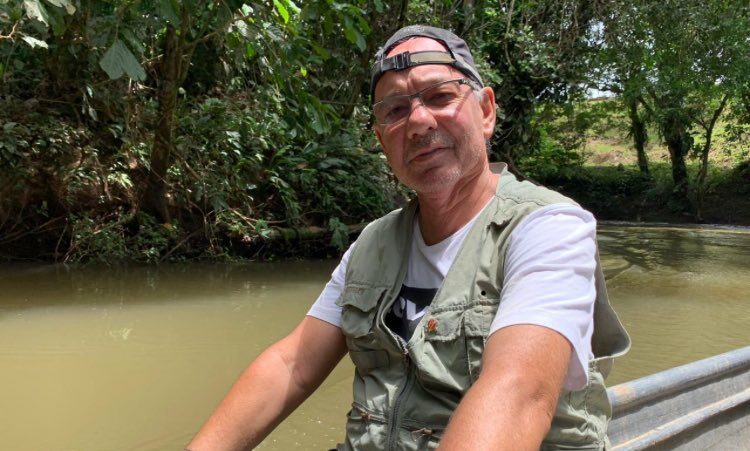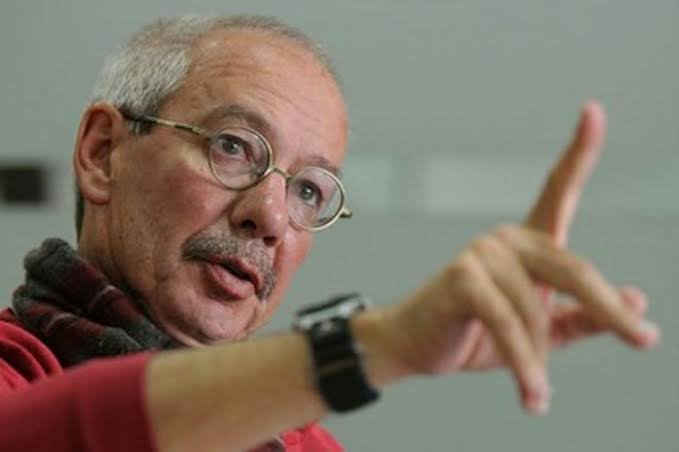Farewell to Jorge Botero, and the legend of Telesur
Aram Aharonian
Legend has it that one day Fidel Castro and Hugo Chavez met and nine months later Telesur was born. I once promised to narrate the genesis of Telesur, which had so many mothers and fathers… that the saying “ mater sempre certa est” seemed like a joke. Telesur only existed in the first years of the century, in the fevered minds of a few dreamers, among them my Colombian friend Jorge Enrique Botero.
In a multitudinous assembly of barely 450 Latin American journalists at the Havana Convention Palace, almost all of us recited about the need for the region’s communicational integration. The breakfasts at the Palco Hotel -and the sessions and conversations in the corridors- served to renew old friendships and complicities.
The truth is that almost all of us were exhausted: tired and half asleep, when without any consideration, Fidel woke us up with a phrase that I remember sounded like this: “you spent three days making diagnoses about our reality at the communicational level, talking about revolution. On that subject, comrades, we know almost everything… But none of you made any proposal… no one thought, for example, of creating a Latin American CNN…”. Obviously, at that hour (it was about three o’clock in the morning, or at least it seemed that way to me), we all burst out laughing collectively: what witty remarks this Fidel has!

And in the following weeks we began to analyze Fidel’s provocation. Anita de Skalom, Miguel Bonasso, Marcelo Larrea, Quique Pezoa, Beto Almeida, Jorge Enrique Botero. Many believed that it had been a ploy by Fidel to make us react, and nothing more. Few of us believed that it was a kick he was giving to those of us who still believed in the need for communicational integration, in giving a voice to those who never had a voice, in the need to assault the mass media.
We only began to talk about the television station with Chavez in 2003, when at the Summit of the Group of 15 he expressed to his peers the need to have Southern media and urged the creation of television stations in South America and in other Latin American countries. He had been stung: the coup d’état (lasting 47 hours) of 2002 showed him the need for communicational sovereignty. The first thing they attacked was the official channel, where the only satellite antenna was located.
From there, some meetings with Chávez took place, we were looking for “cadres” for the project and, for example, we believed that it was right to offer the direction of Information to a young man who had been professionally trained in Germany and the United States, Andrés Izarra, recommended because he was the son of a military man self qualified as a leftist, former producer of CNN and unemployed from Channel 2. Big mistake.
On the first board of directors of La Nueva Televisión del Sur were those of us who started this story: Ana de Skalom, Ricardo Font, Beto Almeida, Jorge Enrique Botero, and the veteran Ovidio Cabrera, representing the Cuban Institute of Radio and Television.

Botero, an experienced and sharp Colombian journalist and writer, an old friend, had the task of starting up the Information Department. For that, it was necessary to have editors, publishers, presenters: until then, all we had were ideas and projects. I remember when I was a journalist for Prensa Latina in Havana, the agency had given him a “polaquito”, a mini car similar to a sewing machine, which he used to get around (and to get us around).
With Jorge Enrique we traveled (or rather we flew) half of America, from Mexico to Chile, looking for staff for the television station, gathering opinions, criteria, visiting universities, media, unions, governors’ offices… “inventing” houses to receive and lodge them in Caracas, outlining the criteria and rules of writing and production.
Sometimes we would stop at his apartment on 19th Avenue in Bogota, sometimes at mine on La Salle Avenue in Caracas, to discuss not only programming and approaches, but also which was the best rum: Cuban, Panamanian, Nicaraguan, Dominican, Puerto Rican, Colombian, Guatemalan or Venezuelan. It was a Herculean task to decide which rum was the best, and also to build an informative editorial staff and the corresponding guidelines. But on May 25, 2005, we had already succeeded.
Lesson: the corrupt Andrés Izarra, imposed as president of the channel, fired him on the first day of transmission: it was too much competition for his mediocrity.
Later we met several times, in Bogota, in Buenos Aires, but ours was already a festival of memories: “Telesur was the most beautiful journalistic experience of my life,” he told me. Then, lowering the tone of his voice, he added “well, no. The truth is that it was disputed. The truth is that it was disputed by Prensa Latina”. The last time I was in Bogota, we did not see each other: my colleagues told me I was in poor health.
*Uruguayan journalist and communicologist. Master in Integration. Creator and founder of Telesur. President of the Foundation for Latin American Integration (FILA) and director of the Latin American Center for Strategic Analysis (CLAE).
